Are you looking for a way to get more protein into your diet without relying on protein powder?
Protein powder can be expensive and filled with artificial ingredients, so many people are turning to natural sources of protein.
In this article, I’ll share 8 of the best substitutes for protein powder that you can use to boost your intake without breaking the bank.
From nuts and seeds to legumes and dairy products, there are plenty of delicious options available.
What is Protein Powder?
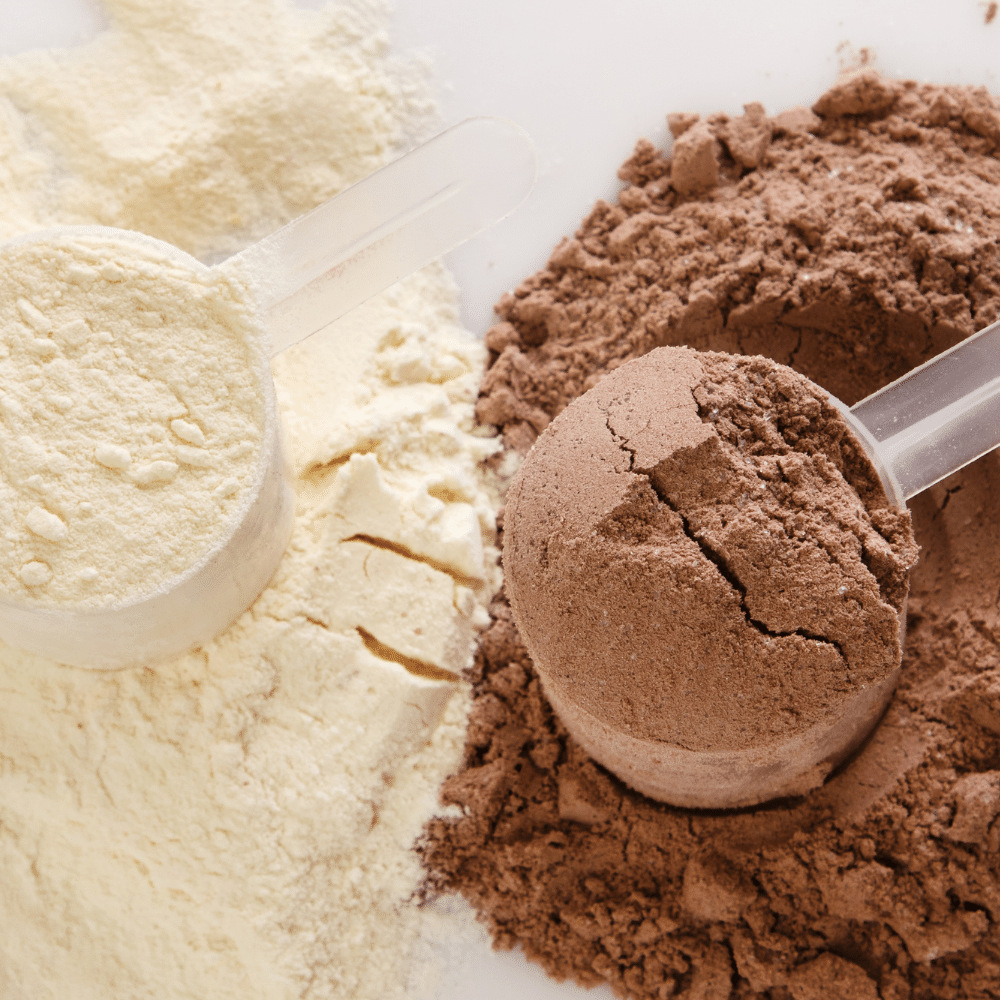
Protein powder is a dietary supplement that contains concentrated amounts of protein from various sources such as dairy, eggs, plants, or animals.
It generally comes in two forms – whey or casein.
Whey protein is the most popular form and it’s quickly absorbed by the body for an almost immediate energy boost.
Casein proteins are slower to digest and provide a more sustained release of energy throughout the day.
Protein powder can be added to liquid beverages like smoothies or juices as well as baked goods like muffins and cookies for an extra nutritional punch.
It is also available in different flavors to suit individual taste preferences like chocolate, vanilla, strawberry etc.
The 8 Best Substitutes For Protein Powder
Sometimes you just don’t have protein powder on hand.
But that doesn’t mean you can’t have a protein-packed meal or snack.
Here are 8 great substitutes for protein powder that will help you get your daily dose of essential nutrients:
1. Nuts and Seeds

Nuts and seeds are an excellent alternative to protein powder for those looking to increase their daily protein intake.
Nuts like almonds, walnuts, and cashews are high in healthy fats and fiber, as well as a good source of plant-based proteins.
Seeds such as sunflower seeds, pumpkin seeds, or chia seeds provide an even greater concentration of protein per serving than nuts do.
These tiny but mighty sources of nutrition can be enjoyed on their own or added to salads and other dishes for a nutritional boost.
Furthermore, nuts and seeds contain essential minerals like magnesium, zinc, iron and calcium that work together with the body’s cells to keep them functioning optimally.
They also provide the body with important vitamins like vitamin A which helps maintain healthy vision; vitamin E which acts as an antioxidant; B vitamins which help convert food into energy; and omega 3 fatty acids which support cardiovascular health.
In addition to all these benefits, they offer convenient portability so you can snack on them wherever you go!
2. Legumes
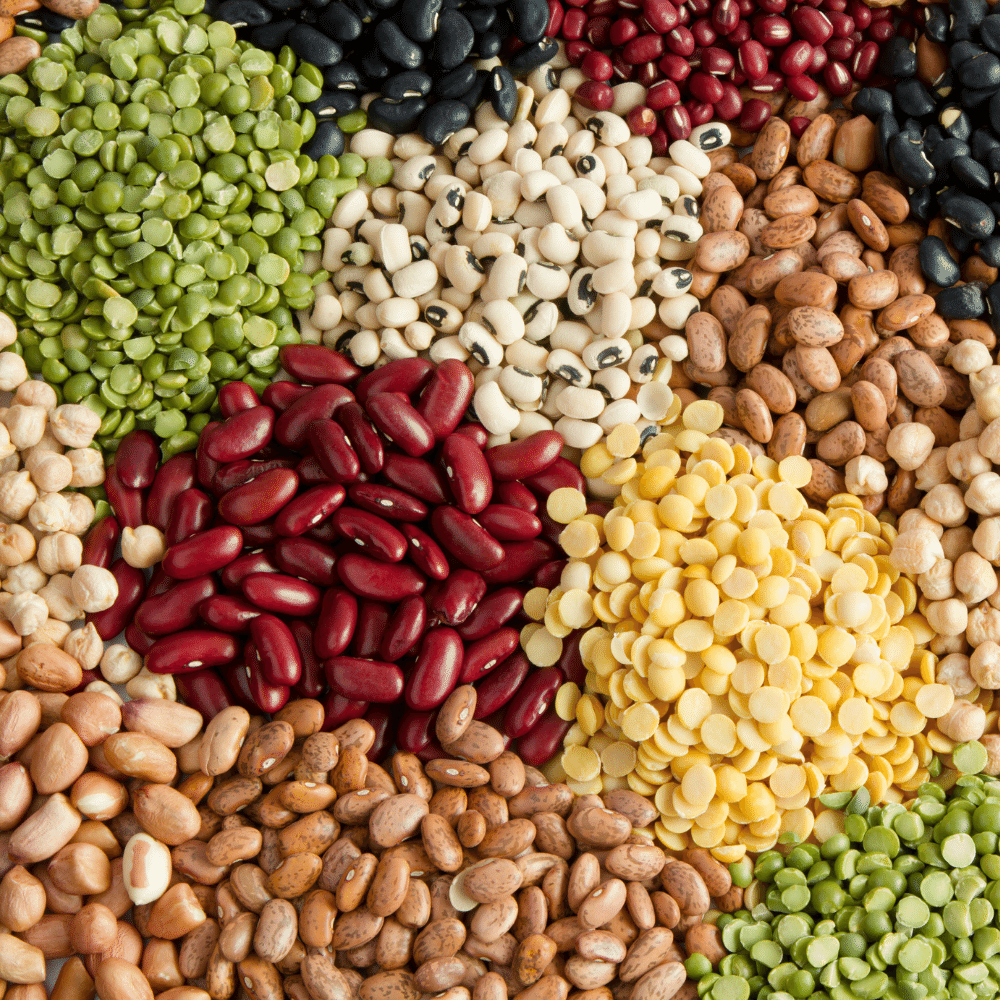
Legumes are an excellent alternative to protein powder for getting your daily dose of proteins.
Legumes are a family of plants that produce edible seeds, such as beans, lentils, chickpeas and peas.
They’re packed with nutrition and provide a good source of plant-based proteins, fiber, minerals and vitamins.
Legumes are also very versatile and can be used in many different dishes like soups, salads or cooked with grains for extra flavor.
For those looking for more protein from legumes – such as athletes or bodybuilders – it is important to combine them with other foods that offer complementary amino acids so that the body can use the proteins efficiently.
Examples include nuts, whole grains and dairy products.
Overall legumes offer an easy way to add more nutrition into your diet without having to rely on protein powder alone!
3. Greek Yogurt

Greek yogurt is a great alternative to protein powder if you’re looking for something healthier and more natural.
It has the same high levels of protein as traditional yogurt, but with less fat and fewer carbs.
Greek yogurt also contains probiotics that can help support digestive health.
One cup of plain Greek yogurt contains approximately 18 grams of protein, making it an excellent source for those trying to increase their daily intake without resorting to supplements or processed powders.
It’s also a delicious snack on its own, with a thick texture and creamy flavor that can be enhanced by adding fresh fruits or nuts for added crunch.
You can even use it as an ingredient in your favorite recipes such as smoothies, parfaits, baked goods, dips and sauces – all while getting an additional boost of healthy proteins!
4. Quinoa
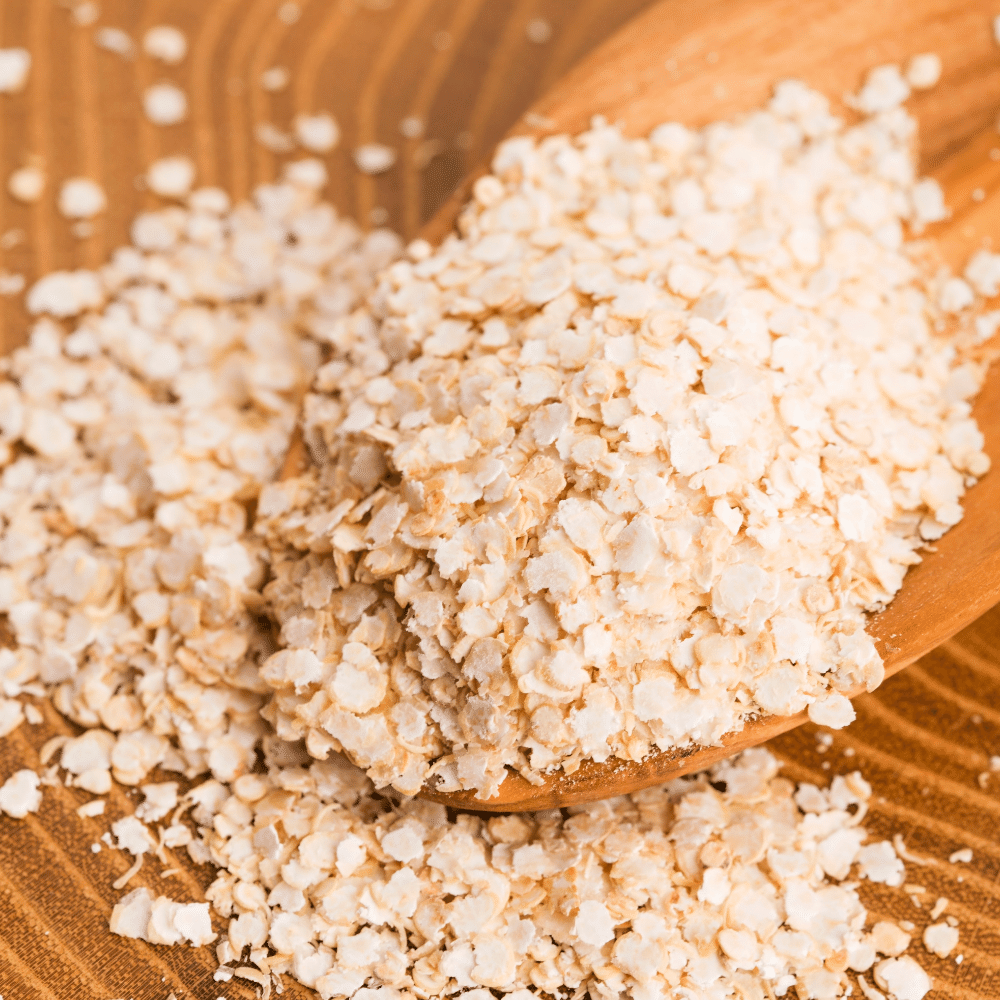
Quinoa is a gluten-free, high-protein grain that can be used in place of rice or oats in recipes.
It is also naturally low in fat and contains a good mix of essential fatty acids.
Quinoa has a mild nutty flavor and can be cooked like other grains, such as rice or faro.
It’s also very easy to prepare: just rinse the quinoa before cooking, then add 1 part quinoa to 2 parts liquid (water or broth).
Bring it to a boil and cook until the liquid is absorbed (about 15 minutes).
Once cooked, fluff with a fork and you’re ready!
In addition to its nutritional value, Quinoa is incredibly versatile and can be used in salads, soups, stews, casseroles, breakfast dishes – even desserts! Try adding it into your next meal instead of protein powder; you won’t regret it!
5. Cottage Cheese

Cottage cheese is a type of fresh, soft cheese made from cow’s milk that has a mild flavor and creamy texture.
It is an excellent source of protein, containing about 14 grams per 1 cup serving. It also provides important vitamins and minerals such as calcium and phosphorus that are essential for strong bones and teeth.
Cottage cheese can be enjoyed in many ways – it’s great on its own as a snack or added to salads, sandwiches, smoothies, omelets, or other dishes that call for protein.
When buying cottage cheese at the store look for low-fat options to maximize nutritional benefits while minimizing fat content.
It’s usually found in the dairy section of your grocery store alongside other cheeses like ricotta and cream cheese.
Be sure to check the expiration date before purchasing since cottage cheese has a shorter shelf life than some other types of dairy products due to its high moisture content.
6. Edamame
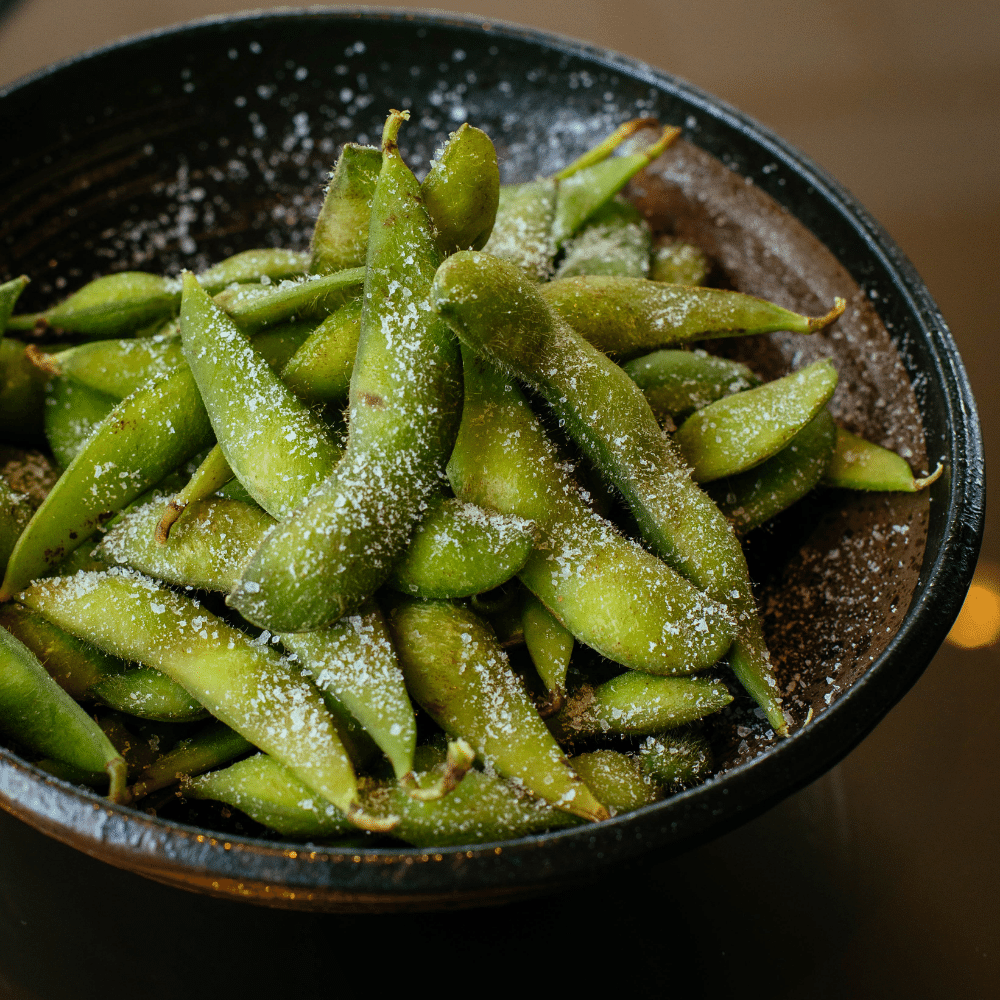
Edamame is a great alternative to protein powder for anyone looking for a plant-based source of protein.
Edamame are immature soybeans, usually sold in their pods and cooked until tender before eating them.
They’re typically served as an appetizer or side dish in Japanese cuisine but can be enjoyed on their own too.
One cup of edamame contains 17 grams of protein, which rivals the amount you would get from a scoop of high-quality whey or plant-based protein powder.
The beans also contain fiber and healthy fats, making them one of the most nutritious snacks out there.
In addition to being rich in nutrients, they’re low-calorie and full of flavor!
You can buy edamame fresh or frozen at most grocery stores, so if you need an easy way to increase your daily intake of plant-based proteins without taking supplements, give edamame a try!
7. Eggs
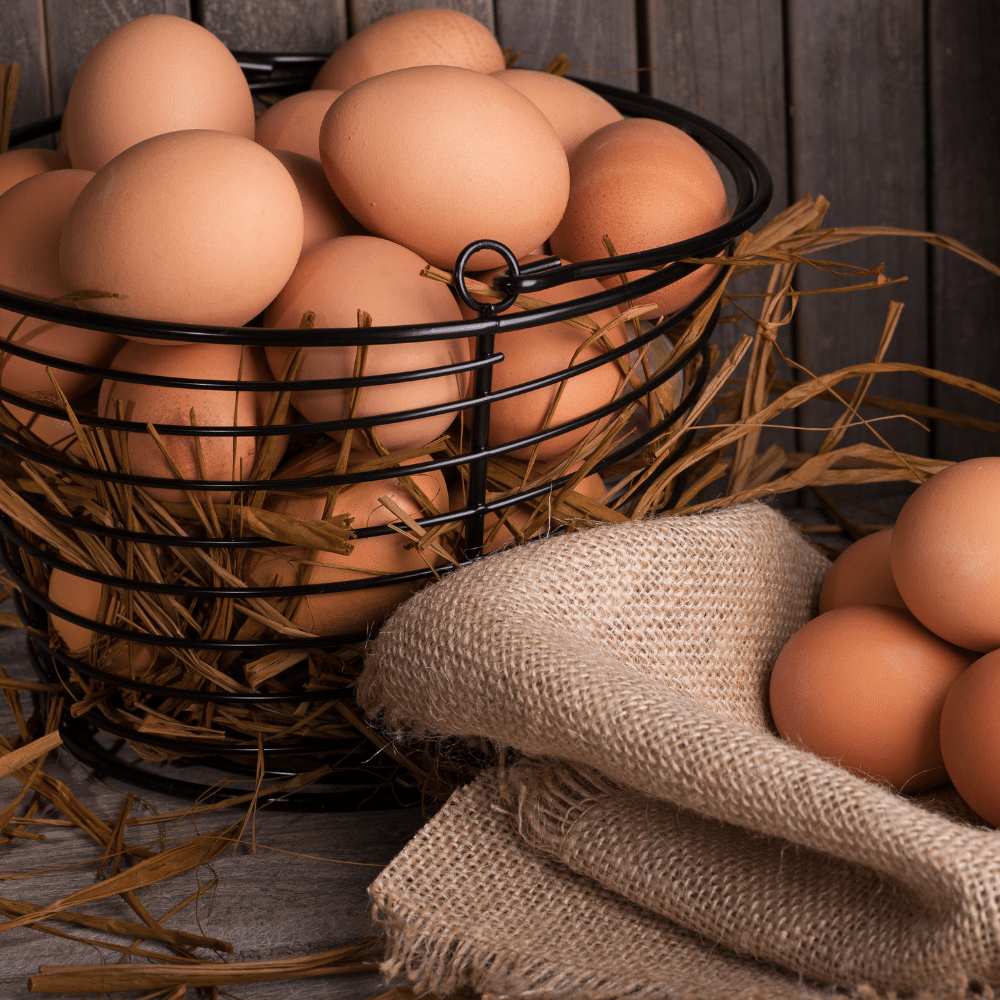
Eggs are an excellent source of protein, and can be a great alternative to protein powder.
Rich in essential amino acids, eggs provide high-quality proteins that help build muscle and promote healthy body function.
Not only that, but eggs also contain important vitamins and minerals such as Vitamin D, A, E and B12 as well as iron and zinc for better overall health.
Eggs can come from chicken or duck sources, with some varieties also offering omega-3 fatty acids which help reduce inflammation.
Eating one large egg provides about 6 grams of protein – the equivalent of 1 ounce of meat or fish – making them a great addition to any meal regardless of whether you’re trying to lose weight or gain muscle mass.
Plus they’re incredibly versatile; scrambled eggs make for a delicious breakfast while hard-boiled eggs are perfect for lunch or dinner accompaniments!
8. Nut and Seed Butters

Nut and seed butters are an excellent alternative to protein powder for those who either don’t have it on hand or don’t want the processed ingredients found in many of today’s powders.
These spreads come from a variety of sources, such as almonds, peanuts, cashews, sunflower seeds and more.
They are high in protein and healthy fats that can help keep you full longer than just relying on traditional carbohydrates.
The great thing about nut and seed butters is that they can be added to smoothies, oatmeal, pancakes or even used as a dip for fruits and vegetables.
They add a creamy texture while also delivering essential vitamins such as vitamin E, magnesium and zinc.
In addition to being tasty additions to meals or snacks, nut butters also provide additional plant-based proteins that can easily be incorporated into any diet plan without much fuss.

The 8 Best Substitutes For Protein Powder
Ingredients
- Nuts and Seeds
- Legumes
- Greek Yogurt
- Quinoa
- Cottage Cheese
- Edamame
- Eggs
- Nut and Seed Butters
Instructions
- Pick your favorite substitute from the list above.
- Follow cooking directions for your selected substitute with the proper ratio of ingredients.
Hi, I'm Benjamin. I love cooking, long walks, and my girlfriend! Here you’ll find simple and delicious recipes that you can make in 30 minutes or less.

